Amnesty International Calls On Iran To Halt Executions ‘Immediately’
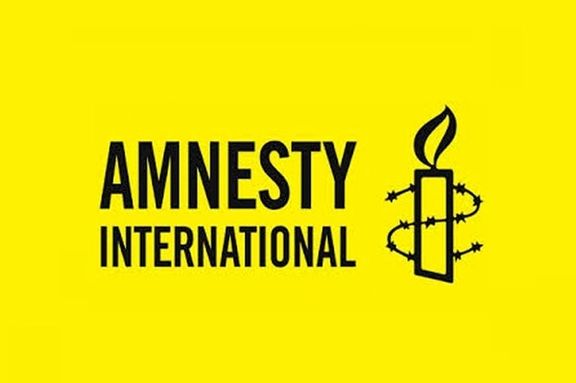
Amnesty International has urged the Iranian regime to immediately stop all executions of people sentenced to death in relation to nationwide protests.

Amnesty International has urged the Iranian regime to immediately stop all executions of people sentenced to death in relation to nationwide protests.
In a statement on Wednesday Amnesty censured the arbitrary executions of Mohammad Mehdi Karami and Seyed Mohammad Hosseini on January 7 and called on the Islamic Republic to halt issuing death penalty for demonstrators.
The international body also warned that another protester, Mohammad Ghobadlou and several others risk the same fate.
On January 2, Iran’s supreme court upheld the death sentence of Mohammad Ghobadlou, 22, in connection with the ongoing protests.
In the past week, Iranian courts also issued five more protest-related death sentences to detainees after sham trials.
“It is abhorrent that the Iranian authorities persist in their state-sanctioned killing spree as they desperately seek to end the protests and cling to power by instilling fear among the public,” said Diana Eltahawy, Amnesty International’s Deputy Director for the Middle East and North Africa.
“The arbitrary executions of Mohammad Mehdi Karami and Seyed Mohammad Hosseini, just days after their death sentences were upheld, reveal how the Iranian authorities continue to wield the death penalty as a weapon of repression, and serve as a chilling reminder that scores of others remain at risk of execution,” she added.
Iran’s judiciary has so far executed four young protestors after holding trials that according to human rights activists were unfair and without due process.
According to Norway-based Iran Human Right Organization at least 109 protesters are in danger of receiving death penalty or being executed.
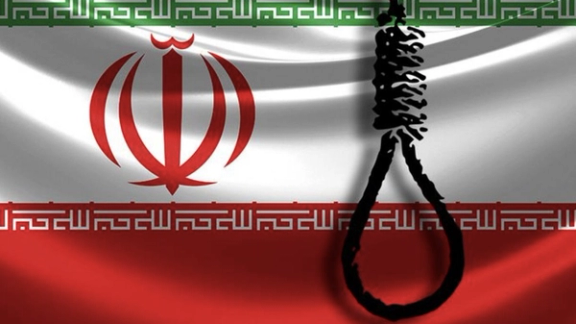
Protests in Iran continue online and via political graffiti as the Islamic Republic is issuing death sentences, long prison terms and floggings to quash voices of dissent.
According to reports, some of the protesters who were injured during the regime’s crackdown refrain from going to hospitals in fear of arrest, leading to deaths in some cases.
The council of the country's student unions cited reports Tuesday that Ghazal Amiri, a student at Shiraz University, was beaten by security forces during the protests on September 10, but was not taken to hospital. The following day, her condition worsened, and she died after finally being transferred to the hospital.
There are many similar deaths that are not revealed to the media because their families are under pressure by intelligence agents. Iran International also obtained information about a young woman who fell to her death from the fourth-floor window of her home when security forces came looking for her.
In addition to over 500 protesters who have been killed during nearly four months of unrest, more than a dozen detainees have been sentenced to death. The Islamic Republic has already executed four people over their participation in demonstrations.
Security forces and the hardliner Judiciary have claimed that many of the dead protesters committed suicide or had medical preconditions.
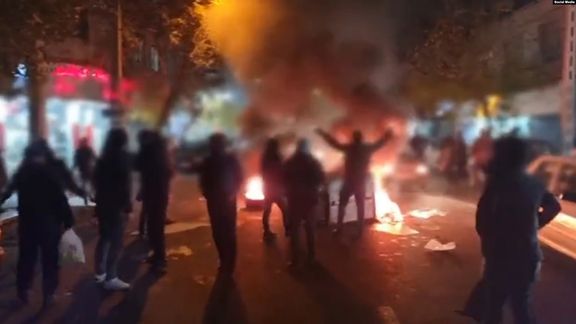
Meanwhile, there are several reports about the deteriorating health conditions of the detained protesters. According to reports obtained by Iran International, the teeth of Saleh Mirhashmi, a protester sentenced to death, were broken and his eardrum was also ruptured under torture in prison. Mirhashmi has recently married, and his mother is under immense psychological pressure due to her son's condition.
The number of protesters who are given death sentences in the regime’s courts is also increasing. Ebrahim Naroui, who was arrested during protests in the southeastern city of Zahedan, was sentenced to death by the Sixth Branch of the Revolutionary Court of the city on the charge of "Moharebeh". Three more Iranians arrested during antigovernment protests in the northern city of Nowshahr were sentenced to death on Tuesday. Iran's judiciary said Monday that a court has sentenced three more protesters to death for “war against God”.
Political activist Heshmatollah Tabarzadi, who already served several years in the regime’s prisons, was also sentenced to “corruption on earth,” a sentence punishable by death. He was arrested on September 20.
The judiciary’s branch in Kordestan province also announced Tuesday that Pouria Javaheri is also facing a death sentence for “Moharebeh.” He was arrested in the city of Kamyaran during protests late in November.
“Moharebeh” and "corruption on earth" are vague Islamic-Arabic Sharia concepts that in the lexicon of the Iranian regime means a death sentence. The Islamic Republic considers many acts of opposition or defiance against the regime as “Moharebeh” and "corruption on earth", with the maximum punishment of death.
Clerical judges who take orders from the hardliner Judiciary convict people to death without a real trial, often with no defense lawyers and behind closed doors. The defendants have no way of challenging state evidence or introducing witnesses.
According to the Norway-based Iran Human Rights Organization, at least 109 Iranian protesters are currently at risk of execution or facing death sentences, but the number seems to be much higher with new cases revealed almost every day. The rights organization also stressed that repression through arbitrary arrests, physical torture, sexual assault and rape in detention and the mass issuance of sentences has been intensified.
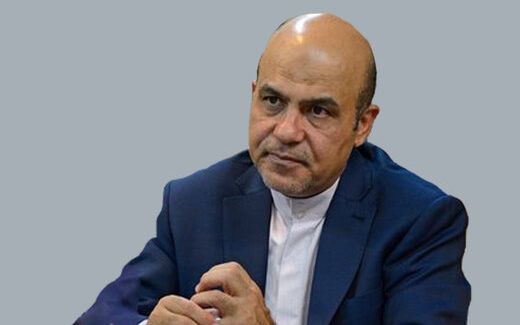
A former Iranian defense ministry official, who holds dual Iranian-British citizenship, has been sentenced to death on charges of spying for the UK.
Iranian state media reported Wednesday that Alireza Akbari has been sentenced to death for allegedly spying for MI6.
In a statement published by Iran's Intelligence Ministry, Akbari was described as "one of the most important infiltrators of the country's sensitive and strategic centers".
He was detained more than three years ago and has been in the notorious Evin prison in Tehran since then.
Akbari had been deputy defense minister under the reformist President Mohammad Khatami, from 1997 to 2005. He was also close to Ali Shamkhani, the secretary of the Supreme National Security Council of Iran.
He was an advocate for the Iran nuclear deal known as the JCPOA that was eventually signed in 2015 with world powers.
Britain's Foreign Office has urged the Islamic Republic to immediately release the dual national.
However, Akbari's wife Maryam said an official asked her to visit her husband in jail for a 'final meeting' before his execution.
Reports say he has been moved to solitary confinement, indicating that his execution is imminent.
However, no details have provided about his specific charges and court proceedings.
"Our priority is securing his immediate release and we have reiterated our request for urgent consular access," a UK Foreign Office spokesperson said.
Nournews, which is affiliated to the country's top security agency reported that Akbari's death sentence has been upheld by Iran's Supreme Court.

The first session of the court of appeal for a former Iranian official guilty of war crimes in connection with mass executions in Iran in 1988 was held Wednesday in Stockholm.
Hamid Nouri, 61, received a life sentence last July for his leading role in the massacre of large numbers of jailed opposition members.
Nouri’s life sentence by the primary court, can keep him in prison for 25 years according to Swedish law 25 years in prison in Sweden. He has appealed the court’s verdict.
According to Iran International’s correspondent from the court of appeal, during the Wednesday session, Nouri constantly complained about not being transferred to the general ward and his lack of access to ophthalmological examination.
However, the judge said this issue has nothing to do with the court and should be discussed with the prison authorities by Nouri's lawyers.
Earlier, Majid Nouri, his son, had complained about his father's glasses and had cited the interruption of serving him tea as examples of torture.
This comes while Nouri’s colleagues in Iran execute innocent young protesters for setting fire to a trash bin.
Sweden arrested Nouri upon his arrival at Stockholm Airport in 2019 and in 2021 put him on trial over the mass execution and torture of prisoners at Gohardasht Prison in July and August 1988.
Most victims were linked to the opposition group Mujahedin-e Khalq Organization (MEK) and also other leftist organizations.
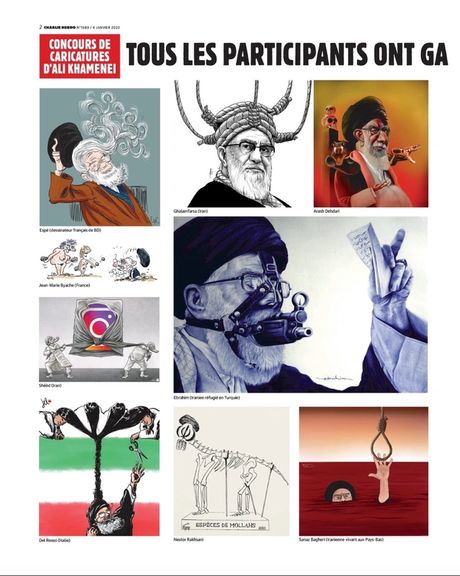
The French satirical magazine Charlie Hebdo in a note in Farsi called the Islamic Republic's threats an indication of the weakness of the religious dictatorship in Iran.
The magazine last week published caricatures depicting Iran’s 83-year-old authoritarian ruler Ali Khamenei, which immediately prompted official protests to the French government and threats against the publications.
Asserting that it will publish more cartoons of Iran’s clerics, Charlie Hebdo wrote “The mullahs aren't happy. The caricatures of their supreme leader... do not seem to have made them laugh," the paper's editor, known as "Riss" wrote Tuesday.
"It is an honor in one sense, but above all proves that they feel their power is very fragile," added Riss.
The satirical magazine was hit by a cyber-attack after publishing the caricatures.
"A digital attack doesn't leave anyone dead, but it sets the tone. The mullah's regime feels in such danger that it considers it vital to its existence to hack the website of a French newspaper," noted Riss.
Hossein Salami, Commander of the Revolutionary Guard, threatened the staff of the French magazine with revenge on Tuesday.
"Sooner or later, Muslims will take revenge and you may arrest the avengers, but the dead will not rise again,” said Salami.
Earlier, Iran’s Foreign Minister Hossein Amir-Abdollahian called the publication of Khamenei's caricatures "an insult to the sanctities", claiming that the Israeli "lobby" was behind the move.
Some government officials and groups in different countries have condemned the threats and called for more pressure against the Iranian regime.

White House National Security Adviser Jake Sullivan and US special envoy for Iran Rob Malley have once again demanded the release of US nationals jailed in Iran.
In a tweet on Tuesday, Sullivan pointed out that it has been "five terrible years" since Morad Tahbaz was detained in Iran.
“We again call on Iran to release immediately Morad and fellow Americans Emad Shargi and Siamak Namazi. Reuniting these Americans with their families is a top priority of this Administration,” he added.
In a similar tweet, Robert Malley also described the “wrongfully” detainment of Morad Tahbaz for five years “too many”.
“We have no higher priority than making sure that Morad and fellow wrongfully detained U.S. citizens Emad Shargi and Siamak Namazi return home and are reunited with their loved ones,” reads his tweet.
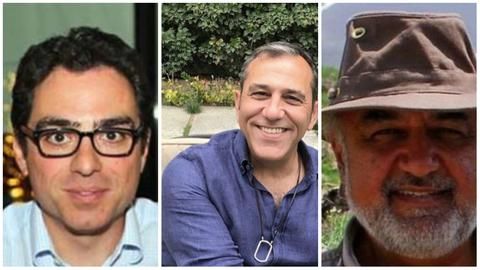
Iran routinely arrests people with Western passports and uses them as bargaining chips.
Tara Tahbaz, the daughter of Iranian-British-American Morad Tahbaz, told CNN on the fifth anniversary of her father's arrest that her family still is calling on the United States and United Kingdom to do whatever they can to bring him home.
Morad Tahbaz, 66, is a British-US-Iranian triple national who was arrested in January 2018 and sentenced to 10 years in prison on “espionage” charges.
Siamak Namazi, is a 50-year-old dual-national businessman, who was arrested and imprisoned in October 2015 on charges of "collaborating with the US government".
Emad Shargi is another Iranian-American businessman who was convicted of espionage without a trial and sentenced to 10 years in prison in 2020.